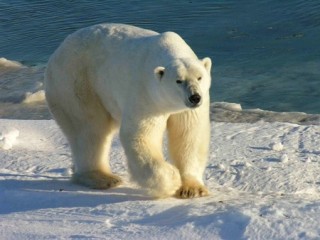 A proposed global ban on the trade of polar bear parts has divided wildlife protection campaigners.
A proposed global ban on the trade of polar bear parts has divided wildlife protection campaigners.
The proposed all-out ban is set to be discussed during a UN meeting in Thailand in March. Some groups support the effort, saying that the trade of bear products has a significant impact on polar bears’ fight against extinction. However, others say that the trade is a negligible threat and that the focus should remain on the real culprit – climate change.
The WWF, an international group long recognised for its efforts to save polar bears, is cynical about the impact of a ban.
The group’s wildlife trade policy expert Dr Colman O’Criodain told the media, “If we were tempted to support it on the basis of trade being a major threat, it is not. We have to focus on what is the major threat and not distract ourselves with a relatively minor one. We can’t be arguing for the science when it suits us and then ignore it when it doesn’t suit our case,” the BBC reports.
O’Criodain added that the WWF will not actively campaign for the measure because climate change is the real threat to the species. However, he said that the organisation will accept the ban should it be approved.
Conversely, groups such as the Humane Society International argue that bear parts have been trading at alarmingly higher rates in recent years (up 375 percent), playing major role in the bears’ dwindling numbers.
Executive director Mark Jones told the BBC on behalf of Humane Society International/UK, “The drivers for the increase in recent years in the trade in polar bear parts are the extremely worrying and rapidly increasing prices being paid on international markets for polar bear parts. We urgently need the British government to step forward and be a champion for polar bears by supporting their maximum protection.”
